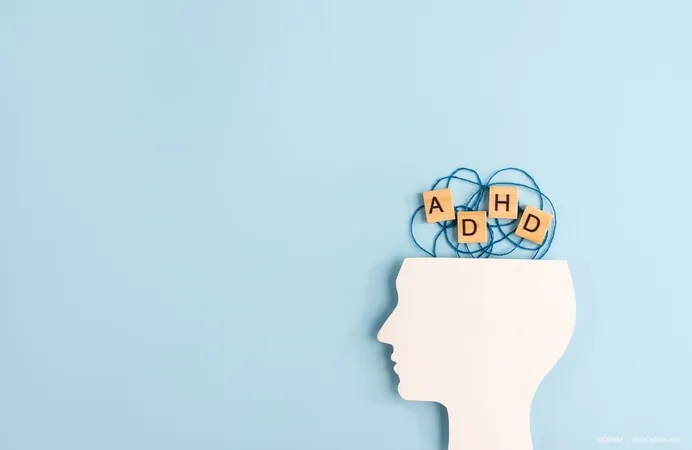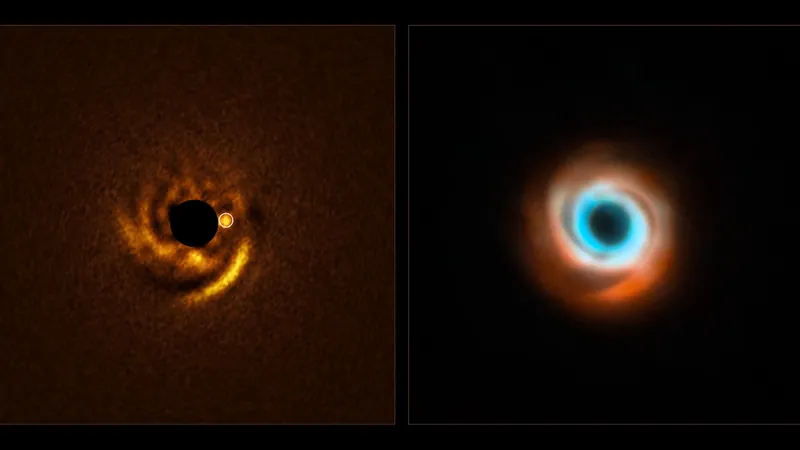
Breakthrough Study Reveals Surprising Link Between ADHD and Myopia
2025-07-18
Author: Arjun
Unveiling the Unexpected: ADHD and Eye Health
In a groundbreaking study from China, researchers have uncovered a fascinating connection between Attention-Deficit Hyperactivity Disorder (ADHD) and a reduced likelihood of developing myopia, often known as nearsightedness. Conducted by Dr. Xiu Nian Chen and his team at The Chinese University of Hong Kong, this research opens new avenues for understanding how neurological conditions impact eye health.
Myopia: A Global Concern
Myopia has become a major public health issue worldwide, affecting millions and raising concerns among health professionals. While ADHD patients usually experience various visual challenges, including astigmatism and reduced color discrimination, this new study suggests a counterintuitive benefit of ADHD.
What the Study Found
The study analyzed a group of 474 children with ADHD and a staggering 9,950 control children, all aged between 6 to 8 years. Researchers found that the prevalence of myopia was notably lower in ADHD kids (21%) compared to their peers (26%). Moreover, these children exhibited higher hyperopic spherical equivalent refraction (SER) and shorter axial lengths, crucial indicators of eye health.
The Role of Medication
Intriguingly, the first-line treatment for ADHD, oral methylphenidate, seems to play a role in this phenomenon. The medication enhances dopamine levels, which is also known to influence myopic eye growth. The results indicated that children treated with methylphenidate showed even less myopia and better SER compared to controls.
Impact of Lifestyle and COVID-19
The study also hinted at lifestyle differences, as children with ADHD might engage in distinct patterns of near-work and outdoor activities, impacting myopia development. Notably, the prevalence of myopia among these children spiked from 23% before to 32% during the COVID-19 pandemic, highlighting urgent public health implications.
Caution in Interpretation
Despite these intriguing findings, Dr. Chen and colleagues cautioned that the clinical significance of the relationship between ADHD and myopia should be interpreted with care, as the effects observed were relatively small.
A New Frontier in Research
This study marks a crucial step toward unraveling the complex interplay between ADHD and eye health, urging further research to confirm and expand upon these findings. Could ADHD treatment not only help with attention but also protect against myopia? The questions remain tantalizing, promising a new frontier in both ADHD and ophthalmic research.



 Brasil (PT)
Brasil (PT)
 Canada (EN)
Canada (EN)
 Chile (ES)
Chile (ES)
 Česko (CS)
Česko (CS)
 대한민국 (KO)
대한민국 (KO)
 España (ES)
España (ES)
 France (FR)
France (FR)
 Hong Kong (EN)
Hong Kong (EN)
 Italia (IT)
Italia (IT)
 日本 (JA)
日本 (JA)
 Magyarország (HU)
Magyarország (HU)
 Norge (NO)
Norge (NO)
 Polska (PL)
Polska (PL)
 Schweiz (DE)
Schweiz (DE)
 Singapore (EN)
Singapore (EN)
 Sverige (SV)
Sverige (SV)
 Suomi (FI)
Suomi (FI)
 Türkiye (TR)
Türkiye (TR)
 الإمارات العربية المتحدة (AR)
الإمارات العربية المتحدة (AR)